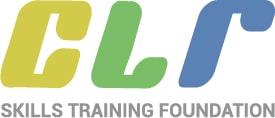Skill development is no longer a matter of choice. It is imperative to adapt, survive and succeed. We work in an era where dealing with ambiguity and disruptive trends are pivotal to success. In parallel to maintaining an academic awareness of your field, you have to review the career eco-system. Adapting skills and attitude is now inevitable to succeed in the years to come.
We work in an era where dealing with ambiguity and disruptive trends are pivotal to success. In parallel to maintaining an academic awareness of your field, you have to constantly review the career ecosystem. Adapting skills and attitudes is now inevitable to success, and will prove all the more critical in the years to come.
Let’s start with a basic question – what is skill development? In a fundamental way, skill development for a learner could mean four things:
- The skills or knowledge you acquire as a part of your academic qualification.
- Any other skill you invest in, to stay future ready.
- Any skill you pursue as a passion.
- Natural behavioral strengths.
While discussing skill development, it would make sense to start with academic qualifications. Then, we can examine some more aspects which impart skills in the contemporary business environment.
Academic qualification – an initial impetus
A degree from a reputed institution is definitely an advantage and acts as an initial impetus. Right from interviews with reputed companies on campus, to the value it carries whenever you introduce yourself, it presents various opportunities to project you as a potential candidate. But at the same time, as a student, it is extremely crucial to be “context-wise” these days. ‘Context-wise’ means being aware of the challenges our profession will pose in the future and having the foresight to be ready for it.
Skills – a futuristic approach
Let’s take an example of an MBA student aspiring to specialize in marketing. To be “context-wise,” he needs to have answers to the following questions:
1. How is marketing as a skill going to pan out in the next decade?
2. What sub-skills are relevant besides the degree?
3. How are organizations going to look at a marketing role and how different is that from the reality of what the degree is offering?
4. What demands will organizations have from a marketing person, in the future?
The answers to these questions are stepping stones to gathering context on one’s core skill. This helps in getting started on being environment-ready.
The inevitable impact of technology
No matter what skills you have, you can’t ignore the potential impact of technology on your career. Technology is impacting every profession, including support functions such as HR, finance, administration etc, which are all hugely affected. Not to mention the impact on client facing roles and the overwhelming transformation within tech firms. If a couple of certification courses will help you be more relevant in the industry, then those are the best skill investments today. Someone investing early in ‘social media marketing skills’ to stay future ready is a good example of that.
Investing in behavioral readiness/development
As one starts climbing the career ladder, complexity increases. You have to manage the dynamics, build relationships, manage teams. All these things are going to be taxing for someone who is not behaviorally ready. If you think that you can pick up skills as you gain experience and go with the flow for large parts of your career, it would be an extremely risky way of looking at your career development.
You can also work towards achieving behavioral excellence in your field, just as you can invest in technical expertise. You just have to be very clear about the behavioral demands of the role that you soon intend to be in and work progressively towards mastering those.
Let’s call out a few predominant trends and data points relevant to skill development in the current scenario:
- A growing economy with an array of opportunities in the professional world has increased the overall demand for skilled manpower.
- The India Skills Report states that India needs 700 million skilled workers by 2022 to meet the demands of a growing economy.
- Multiple new trends are disrupting the face of most industries as we know them, thereby increasing the need for an ever agile workforce.
The choices for learners today are absolutely clear: take a pragmatic look at your future area of work, along with your strengths and weaknesses and ask yourself, what “context-related edge” can you give yourself?
The answers should be parallel and updated knowledge of upcoming technologies. It will help you to stay prepared for a certain behavioral or attitudinal adaptation. It will also help you navigate professional complexities in the future. The most pressing need for any student aspiring to be a professional, or learner who is already a working professional, is to be constantly skill-ready in a technology-enabled and disruptive world.
Source: upgrad






